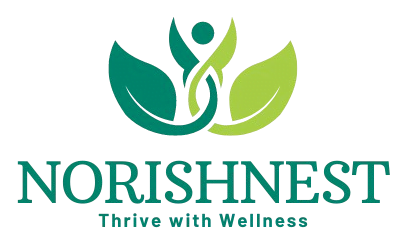Cognitive-Behavioral Therapy for Disruptive Behavior Disorders: A Holistic Approach to Positive Change
Disruptive behavior disorders pose significant challenges for individuals and their families, impacting various aspects of daily life. Cognitive-Behavioral Therapy (CBT) emerges as a powerful and effective intervention for managing disruptive behavior disorders, grounded in evidence-based principles that aim to transform negative thought patterns and behaviors, fostering positive change and enhancing overall well-being.
Understanding Disruptive Behavior Disorders: A Complex Landscape
Disruptive behavior disorders encompass a range of conditions, including oppositional defiant disorder (ODD), conduct disorder (CD), and intermittent explosive disorder (IED). These disorders often manifest in persistent patterns of challenging behaviors, such as aggression, defiance, and impulsivity. Mental health professionals in Frisco recognize the need for tailored interventions that address the unique aspects of disruptive behavior disorders.
The Foundations of Cognitive-Behavioral Therapy
Cognitive-behavioral therapy is a widely recognized therapeutic modality that adapts to the individual’s needs and goals. This approach emphasizes the role of thoughts in influencing feelings and behaviors, focusing on identifying and restructuring negative thought patterns. Individuals in Frisco undergo CBT work with therapists to recognize distorted or irrational thoughts that contribute to disruptive behaviors, and by challenging and reframing these thoughts, individuals gain a new perspective, leading to more positive and adaptive behaviors.
Behavior Modification Techniques: Reinforcing Positive Change
Behavior modification is a central component of CBT for disruptive behavior disorders. Therapists in Frisco collaborate with individuals to develop and implement behavior modification techniques, focusing on positive reinforcement and rewards to promote positive change and reduce disruptive behaviors.
Skills Training: Equipping Individuals with Coping Strategies
CBT includes skills training sessions aimed at equipping individuals with effective coping strategies, such as anger management, impulse control, communication skills, and problem-solving techniques. By arming individuals with practical tools, CBT empowers them to navigate challenging situations and make more constructive choices.
Family Involvement: Strengthening Support Systems
Recognizing the impact of disruptive behavior disorders on family dynamics, CBT often involves family members. Therapists work collaboratively with families to enhance communication, establish consistent discipline strategies, and create a supportive environment for positive change.
Holistic Approach: Addressing Comorbidities and Enhancing Well-being
In Frisco’s holistic therapeutic approach, CBT for disruptive behavior disorders considers the broader context of mental health. Therapists assess and address potential comorbidities, ensuring a comprehensive understanding of individual needs. By adopting a holistic perspective, CBT contributes not only to symptom management but also to overall mental well-being.
Monitoring Progress and Adjusting Strategies
CBT is a dynamic and adaptable therapeutic approach, allowing for ongoing assessment and adjustment of strategies. Therapists in Frisco closely monitor individual progress, making modifications to treatment plans as needed. This flexibility ensures that therapy remains responsive to the evolving needs of individuals with disruptive behavior disorders.
Conclusion
Cognitive-behavioral therapy emerges as a beacon of hope for individuals facing disruptive behavior disorders in Frisco. By addressing cognitive distortions, implementing behavior modification techniques, and fostering skill development, CBT empowers individuals to make positive changes in their lives. Faith Health Wellness is dedicated to transforming lives through compassionate mental health care, and our approach to CBT plays a pivotal role in empowering individuals facing disruptive behavior disorders.
FAQs
Q: What is cognitive-behavioral therapy?
A: Cognitive-behavioral therapy (CBT) is a type of psychotherapy that aims to help individuals identify and change negative thought patterns and behaviors.
Q: How does CBT address disruptive behavior disorders?
A: CBT focuses on identifying and restructuring negative thought patterns that contribute to disruptive behaviors, as well as implementing behavior modification techniques and fostering skill development.
Q: Is CBT effective for managing disruptive behavior disorders?
A: Yes, CBT is a widely recognized and evidence-based treatment approach for managing disruptive behavior disorders.
Q: How does CBT involve family members?
A: CBT often involves family members to enhance communication, establish consistent discipline strategies, and create a supportive environment for positive change.
Q: Can CBT help individuals with comorbidities?
A: Yes, CBT considers the broader context of mental health, assessing and addressing potential comorbidities to ensure a comprehensive understanding of individual needs.
-

The Blood Pressure Exercises
Buy product -

Six Star Pre-Workout Powder for Men & Women, Pink Lemonade (30 Servings) – Preworkout Explosion 2.0 Energy Powder Drink Mix with Beta-Alanine & Caffeine – Sports Nutrition Supplement Products
$24.76 Buy Now -
Sale!

(3 Pack) Rapid Lean Keto ACV Gummies Extreme 2000MG Rapid Lean Keto Gummies Apple Cider Vinegar Formulated with Pomegranate Beet Juice Powder B12 Vegan Non GMO 180 Gummys
Original price was: $99.95.$89.95Current price is: $89.95. Buy Now





